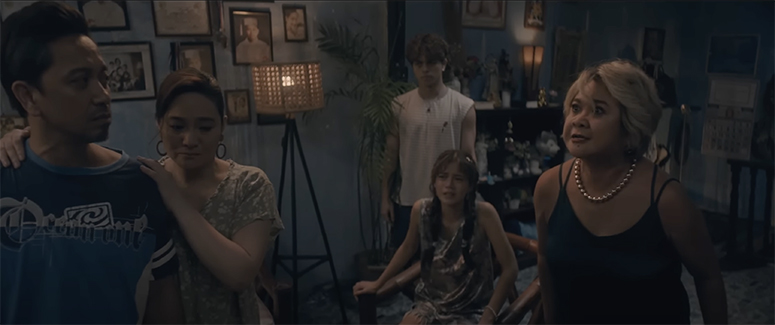REVIEW: 'And the Breadwinner is...' ushers in a new era of Vice
And The Breadwinner Is… stars Vice Ganda as Bambi Salvador, an OFW who’s spent the last 15 years working in Taiwan to provide for her family in Pampanga. When circumstances bring Bambi back to the Philippines, the erstwhile “unkabogable” one is met with the startling revelation that her family is now worse off than when she left fifteen years ago. Having used Bambi’s remittances to fund failed businesses, the Salvadors are mired in debt, and on the verge of losing their ancestral home. With the clan's fate in the balance, Bambi and her family must confront the consequences of being apart for so long.
As directed by Jun Lana, And The Breadwinner Is… marks Vice's return to the Metro Manila Film Festival following a two-year hiatus, and the comedian doesn’t disappoint—despite the time away from the big screen, Vice’s appeal is as strong as ever, with every one-liner, put-down and pun leaving the premiere audience in stitches.
Granted, with over two million Pinoys currently living and working abroad, the Philippine diaspora is hardly groundbreaking material for a local film. But while we’re used to seeing A-list stars in blue-collar roles, it’s decidedly jarring to see the ever-feisty Vice—usually the most glammed-up person in the room—toiling away as a (relatively-) nondescript foreign factory worker.
For his part, the performer brings a surprising amount of heart to the role; whether he’s overstuffing a balikbayan box with his family’s bilins or mourning the passing of a fellow OFW, Bambi is rendered instantly relatable to the target audience.

For the first two-thirds of the film, the nature of Bambi’s situation is belied by Vice’s signature humor, leveraging a slapdash plot involving a lost sister (Eugene Domingo), a closeted brother (Kokoy de Santos), and a good-looking insurance agent (Anthony Jennings) investigating potential fraud. By the time we’re introduced to the notions of a Vice Ganda cinematic universe (by way of Praybeyt Benjamin as a Salvador relative) and Joel Torre as a parental memory, the filmmakers unleash their single greatest asset, and it’s not a joke: Vice Freakin’ Ganda.
The scene in question features the Salvadors coming together in the sort of dramatic conflagration that nary a Pinoy film can go without, as each member declares their long-held grievances via tear-filled monologues. While castmates Domingo, Jhong Hilario, and Gladys Reyes are no strangers to these kinds of histrionics, it’s Vice who ultimately owns the nearly twenty-minute scene. Captured in one bravura shot that gives each actor their moment(s), Vice dominates with a revelatory performance that’s as raw and affecting as any in the MMFF’s history.

Here, the previous 90 minutes of interchangeable vignettes with easy punchlines and emotional hooks are forgiven, as the plot finally catches up to the scene this film will ultimately be remembered for, and believe us when we say that Vice absolutely NAILS IT. The performance is so powerful, in fact, one can’t help but wonder what the film would have been like if it had been rendered as a straightforward drama, especially given where the story goes from there.
By the time the credits rolled, it almost felt like we’d experienced two entirely separate films. And while one delivered on its capacity as a fun, lighthearted romp, it’s the promise of Vice as a legitimate dramatic force that captured the imagination in a way that no number of crazy costume changes ever could.
More, please.


